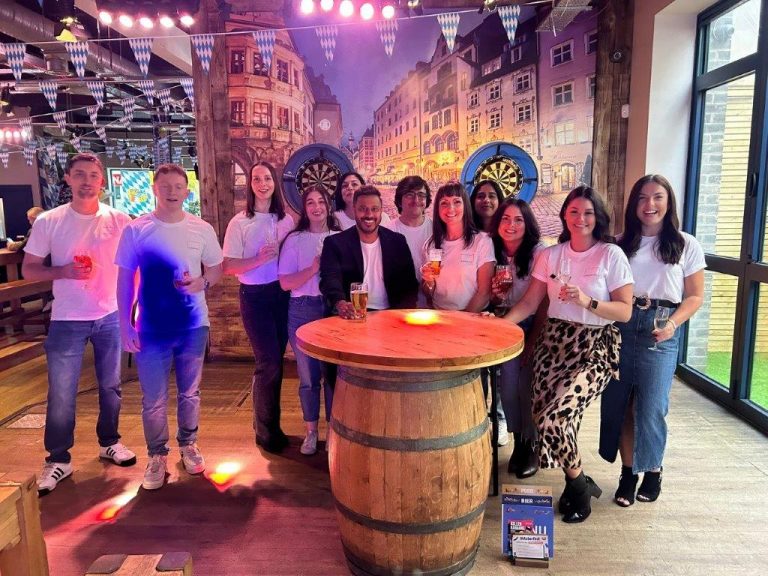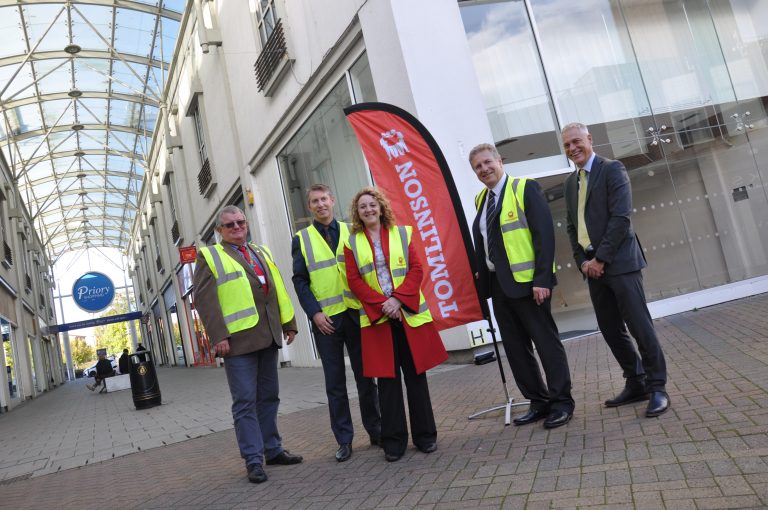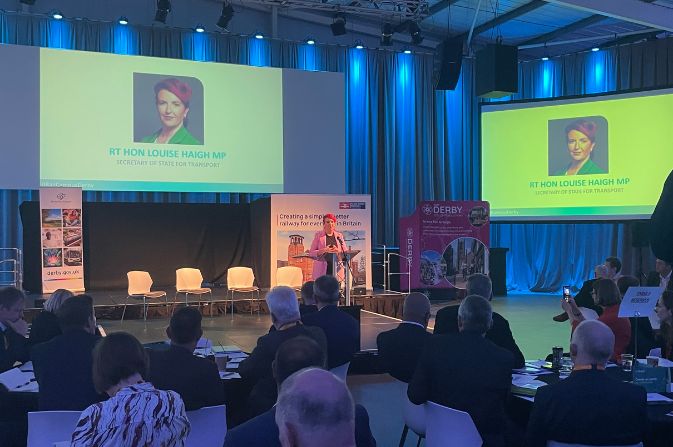Rail Campus Derby officially launched at a special event on Thursday 17 October. Over 200 delegates and stakeholders from the rail sector and beyond attended the event.
A joint effort between Derby City Council, Great British Railways Transition Team, East Midlands Combined County Authority, and wider stakeholders, Rail Campus Derby will become a key hub for the UK’s rail industry, supporting collaboration across all facets of the sector.
Secretary of State for Transport, Louise Haigh MP, and the Mayor of the East Midlands, Claire Ward, both attended the event, highlighting the project’s significance both on a regional and a national level.
Rail Campus Derby was born out of Great British Railways’ mission to create a simpler and more efficient railway system for everyone in Britain.
With its impressive rail heritage and position at the heart of Europe’s largest rail cluster, Derby is a prime location for this industry-wide hub. For over 180 years the city has been a leader in the rail sector, which still employs more than 11,000 in the area.
In 2023, Derby was chosen as the new home of Great British Railways, beating fierce competition from five other shortlisted cities from across the UK. Great British Railways Transition Team, a key driver in Rail Campus Derby, have already established a presence in the city while the search for a permanent GBR headquarters continues.
Beyond the railways, Derby is a home to advanced manufacturing, hi-tech employment, major global companies such as Rolls-Royce, and Toyota. The city’s skilled workforce, and its easy accessibility, makes it an attractive destination for investment.
Councillor Nadine Peatfield, Leader of Derby City Council, said: “This is a once in a lifetime opportunity for Derby; one that will create more training and jobs for local people, and bring huge opportunities for further regeneration.
“Rail Campus Derby will not only preserve our rail heritage, but will also be a catalyst for future economic growth, bringing together all aspects of the railway industry, attracting more investment, and creating further opportunities for collaboration across the sector.
“I know the potential that Derby has. We already boast an incredibly skilled workforce and are home to major players and an unrivalled rail sector. By working together we can make Rail Campus Derby the beating heart of the UK’s rail network.”
Secretary of State for Transport, Louise Haigh MP, said: “Derby is already a hub for rail with the largest concentration of innovation and expertise in Europe, and today I was delighted to see how the local council plans to expand this even further through a new Rail Campus.
“The railways are at the centre of our plans for change, and I look forward to seeing how the Campus will lead to greater innovation, growth and collaboration, benefitting not only our rail network but the wider economy too.”
Claire Ward, Mayor of the East Midlands, said: “The new Rail Campus will be a hub of learning and innovation. It will bring together public and private sector organisations in a collaborative environment, working towards faster and more efficient outcomes for all the railway’s stakeholders.
“As the Mayor of the East Midlands, my vision is to ensure that local people have the skills they need to access the well-paid jobs that this industry provides.
“That’s why we will be investing in training programmes and creating new opportunities in partnership with Derbyshire and Nottinghamshire’s educational institutions. We want to see local people—our young people—benefiting from the jobs and careers this project will generate.”
Rufus Boyd, Lead Director of Great British Railways Transition Team, said: “The presence of GBR HQ in Derby is just one component of the Rail Campus Derby vision.
“Today’s event is about driving collaboration between the private sector, the supply chain, local government, and educational partners. Bringing the sector closer together and offering the chance to co-locate, share knowledge, and experience work across different businesses will embed the practices, culture and behaviour Britain’s railway must embody to succeed.
“This is the essence of Rail Campus Derby.”












